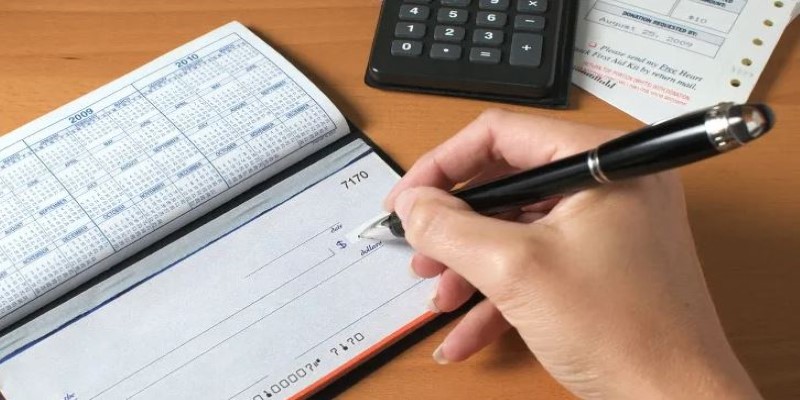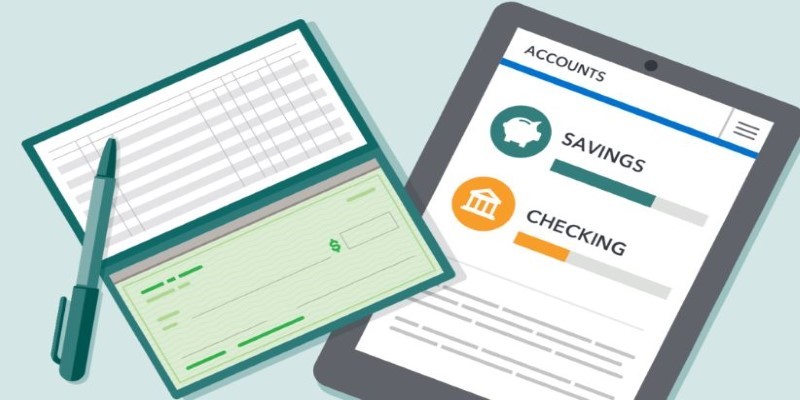When a loved one passes away, handling their financial affairs requires careful planning. One crucial step is opening an estate checking account, a specialized bank account that allows an executor to manage the deceased’s funds, settle outstanding debts, and distribute assets to heirs. Without it, financial management can become disorganized, leading to disputes and delays.
Unlike a personal account, an estate checking account is opened in the estate’s name using a tax identification number from the IRS. This setup ensures transparency, keeps financial records clear, and prevents the mixing of personal and estate funds. Properly managing this account simplifies estate administration and reduces legal complications.
Why is an Estate Checking Account Necessary?
Handling an estate without a dedicated account can be overwhelming. When someone dies, their financial responsibilities do not simply vanish. Creditors need to be paid, utility bills may still be due, and heirs expect a fair distribution of assets. Without a proper system to track these transactions, managing estate funds can quickly become disorganized.
Banks need certain documents to open this account. The executor, who is identified in the will or appointed by the court, must provide a death certificate, a letter of administration or testamentary issued by the court, and an estate identification number. There may be additional requirements at some banks, such as evidence of probate proceedings. After the account is opened, all funds coming into and going out of the estate are handled.
This account keeps money in the black. Any cash from the decedent's accounts, policies, or holdings is deposited into it prior to distribution. Executors use it to write checks for estate-related expenses, ensuring a clear record of every transaction. This can be crucial if beneficiaries or creditors challenge how funds are being handled.
How to Open an Estate Checking Account?
Opening an estate checking account involves several steps, and proper documentation is essential. The executor must first obtain a tax identification number (EIN) from the IRS for the estate. This number functions like a Social Security number for the estate and is required to open any financial account in its name.

Next, the executor should choose a bank that offers estate accounts and review its requirements. Most banks will ask for the deceased’s death certificate, court-issued letters of administration or testamentary, and proof of the executor’s identity. Some may require additional forms to be filled out.
Once the account is opened, all funds from the deceased's accounts should be transferred into it. This includes any life insurance payouts, investment proceeds, or remaining paychecks. The executor can then use the account to pay off debts, manage ongoing expenses, and distribute assets to beneficiaries as outlined in the will.
Keeping detailed financial records is crucial. The executor should track every deposit and withdrawal, ensuring transparency in estate management. If disputes arise, having clear records will help resolve any concerns from beneficiaries or creditors. Properly managing the estate checking account ensures a smooth financial transition and prevents unnecessary complications.
Managing the Estate’s Financial Transactions
Once an estate checking account is opened, the executor is responsible for managing the estate's funds. The first step is gathering all financial assets, which may include savings, investments, pensions, and real estate proceeds. Any pending paychecks or refunds owed to the deceased must also be transferred to this account.
The executor is then responsible for paying off outstanding debts, including mortgages, car loans, medical bills, and credit card balances. If the estate does not have enough money to cover all debts, assets may need to be liquidated to settle obligations. However, state laws often dictate which debts take priority in such cases.
Taxes must also be considered. The estate checking account is used to pay any final income taxes the deceased owed, as well as estate taxes, if applicable. Keeping a record of all transactions helps in filing accurate tax returns and avoiding penalties. If the estate generates income after death, such as rental income or investment returns, it must be reported to the IRS.
When all debts and taxes are cleared, the executor distributes the remaining assets according to the will. This could mean writing checks to heirs, transferring property, or liquidating investments. Some estates involve multiple beneficiaries, requiring careful bookkeeping to ensure everyone gets their fair share.
Challenges and Considerations
While an estate checking account simplifies estate administration, it also comes with responsibilities and challenges. The executor must be cautious when handling estate funds, as mistakes or mismanagement can lead to disputes among beneficiaries or legal consequences. Transparency is key, and detailed records should be maintained for every transaction.

In some cases, the probate process can delay access to estate funds. Probate is the legal process of validating a will and settling an estate. If an estate is large or involves complex assets, it may take months or even years before all financial matters are resolved. During this time, the executor must ensure ongoing expenses, such as property maintenance or legal fees, are covered.
Additionally, some banks have strict policies regarding estate accounts. They may require extra documentation or have specific rules for accessing funds. The executor needs to communicate with the bank and understand all requirements before proceeding.
Estate planning professionals, such as attorneys and financial advisors, can provide guidance to ensure that funds are handled correctly. Some estates may also benefit from setting up a trust to manage assets, reducing the need for prolonged probate proceedings.
Conclusion
An estate checking account plays a vital role in managing a deceased person’s finances. It provides a structured way to handle money, ensuring that debts are paid, taxes are settled, and beneficiaries receive their rightful shares. Without it, financial matters can become disorganized, leading to unnecessary delays and conflicts. Setting up this account requires legal documentation, careful financial management, and adherence to banking regulations. Executors must act responsibly, keeping clear records and ensuring all transactions are properly handled. While challenges such as probate delays and banking policies may arise, a well-managed estate checking account ensures a smooth financial transition after a loved one’s passing.












